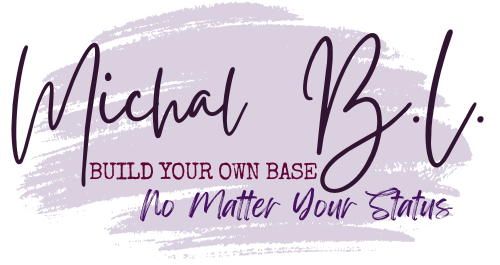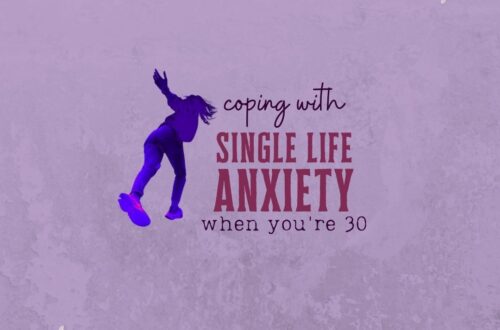
How to Cope in Difficult Times in Life When You’re Single
In this blog post I will discuss the best ways to help you cope in difficult times in life when you’re single – through reaching out & reaching within yourself
I’ve been through some rough times in life, throughout the different stages of it. Whether it’s self-hatred, national security, heart-break, friendships falling apart, family issues, accidents, loved-ones passing away, identity and self-crisis, anxiety, loneliness, and more. These past four months have been some one the worst in my life. And if you’ve been following me on Instagram, you’ll know why. For a while I got sucked into it, I couldn’t find the motivation to do much, certainly not post content as if everything’s normal. Which is okay, sometimes we need to just let ourselves be immersed, and we can’t force something that doesn’t feel right. This is, however, also a wonderful opportunity for new life lessons. And for me to also share them with you, in hopes that you can learn from them, too.
While I do have a partner, my official status is still single and and do still live alone… And so there were many moments for me where I had no choice, but to be there for myself. No matter our status, or how many people we have in our lives… I believe it’s always important to also be there for ourselves. To not always count on others to be there, to help us through or even do it for us. It really should be a combined effort, and just like anything else in life – we need to find the right balance for us and our life. I’ve been through the whole spectrum from coping completely alone, to depending way too much on others. It’s taken me a lot of time, hardships and energy to find the right ways for me to cope in difficult times in life when single (and when not). But in the end, I found my ‘sweet spot’ – though, even so, I still have my struggles and stumbles, and that’s okay.
Here’s an important note before you start coping on your own – You’re not as alone as you think, and you don’t need to do it all by yourself
As humans, one of the most difficult things for us to do is to ask for help. We feel awkward, we don’t want to impose or seem weak. Perhaps we even expect our close ones to notice and say something first. Yet, even if they do notice, they’ll likely still wait for us to come to them. Most people don’t want to force it, or don’t know how. Some will think that if you wanted to, you’d bring it up. In most cases, when asked, we often just say “everything’s okay”. But your loved ones care about you, more than you even know, and you need to trust them enough to be there for you when you need them. Perhaps they need you just as much, and you can show up together, for each other.
When you don’t reach out, when you only keep to yourself and try to overcome your hardships alone – you’ll likely feel very lonely, no matter how capable you are of doing so alone. Yes, it’s important to be strong, and not only rely on others. It’s just as important, however, to also reach out. It’s not a sign of weakness to ask for help – it’s actually one of the biggest signs of strength there is. There’s no shame in it, it’s a basic human need. Even if you can do something alone, doesn’t mean you have to. And you don’t need to be in a relationship to find someone to be there for you. Even if you aren’t single, it’s never good to only depend on one person, certainly not constantly.
Some ways to cope through reaching out to you loved-ones
This goes hand in hand with building a strong support system for yourself. Which should include more than just your romantic relationship. You need to invest not only in yourself and a partner, but also in other relationships in your life, and you need to do so consistently if you want to have someone to fall back on when you need. When you have strong bonds like these, you’ll also likely feel less awkward to reach out when you need to. It will seem less random and out-of-the-blue. Other than having heart-to-hearts and sharing what you’re going through, these are a few extra ways you can share, without even necessarily sharing all you’re going through:
1) Arrange video calls
This is something you should be doing regularly, especially when you don’t see your people often. When you’re going through a hard time, especially when it’s prolonged, having these regular calls – even if you don’t talk about what you’re going through – can really help ease your stress. Seeing your loved-ones faces, especially their smiles, can rub off on you, and lift your spirits, even if just for a moment. This not only shows you how much they care, and how much you’re not alone… But also shows them how much you care as well.
2) Causal visits
You don’t have to go all out every time you want to see your people. You don’t have to invest a lot of time and money into it, and you definitely don’t have to go out. As you mature, you discover the beauty of staying in, and having a calm and quiet evening with your loved-ones. This makes it so much easier to just “pop-in”, especially when they know you don’t expect them to drop everything, or put on a whole meal. Make a habit of not expecting each other to be “super hosts”. This will even bring you closer together and make you feel more comfortable in each others company and homes. Just a short visit and talk can brighten your mood, and give you an extra boost without going all out.
3) Partnered Accountability
Find a close friend or family member to be an accountability partner during difficult times. This could involve daily check-ins or specific goal-setting to ensure mutual support. When you have someone to check-in with, it motivates you to do better. To get out of bed, prove yourself and reach your goals. Having someone to motivate, also gives you a sense of achievement and usefulness. You can also give and take from each other – both sharing what you’re good at and taking what the other is best at. This can either come in the form of calls, texts, reminders, in-person chats, foing activities together, going for walks, etc.
4) Volunteer or Help Others –
Engage in volunteer work or help a loved one in need. Contributing to others’ well-being can offer a sense of purpose and fulfillment. Being there for other people, sharing from your strength, abilities and skills, can help you feel good about yourself. You are putting yourself to good use, and making the most of these hard times. Instead of sinking into the worst of it, you’re taking advantage of the best of it. We also learn best while giving and being there for other people. Doing this will also surround you with good people, who can help you through this time. People who may be going through the same things, so you can share it with them.
Some ways to cope through showing up for yourself and taking care of your own needs
This goes hand in hand with building a strong, healthy self-relationship. Which, again, is something you need to work on all the time, and no matter your relationships status. When you do so, it will be easier for you to cope with yourself through the harder times. You’ll know yourself even better, and thus know the best ways for you to cope and overcome. And you’ll also care about yourself so much more, so you’ll be more likely to invest the time and energy into taking care of yourself and asking for help.
1) Morning & Evening Rituals
Develop a morning routine that incorporates self-care activities such as meditation, gratitude journaling, or affirmations. Starting the day positively can set a resilient tone. This helps you get up in the morning, give you a much needed boost and prevents you from staying in bed all day or wasting time. When going to bed, it will also help wind down, get ready for bed more efficiently… And prevents you from staying up too late, while improving the quality of your sleep. You’re creating stability, something solid in your daily routine and schedule that you can hang onto.
2) Establish a Routine
Consistency is key with any habit or ritual you want to incorporate into your life. Especially when you’re going through a difficult time, and things feel out of hand. You need something strong and stable to prevent you from falling further into the dark pit. When you do so, you’re creating a good base for you to get through, but also gives you a good enough grip even when things are crumbling. Create a daily routine that includes self-care rituals. Set Goals; have achievable goals to work towards, providing a sense of accomplishment. One small step at a time, each building on the one before. To help you feel like your life isn’t falling off its arches.
3) Physical Exercise
I don’t think I need to tell you that daily walks have been scientifically proven to help with anxiety and such. When we go through hard times, the last thing we want to do is get out of the house, to move our body. We just want to wallow, binge-watch, while binge-eating. Engaging in regular physical activity, is also usually the first thing we need. Exercise releases endorphins, which can improve mood and reduce anxiety. It also prevents you from being cooped-in all day, which can make you feel suffocated and even more anxious. Ensure you’re nourishing your body with nutritious meals; Proper nutrition can significantly impact your mental well-being.
4) Creative Outlets
Channel your emotions into creative activities like writing, painting, or playing an instrument. Often, just talking to someone isn’t enough, certain things can’t be expressed in words. Or maybe we don’t want, or aren’t ready yet to say them out loud. Expressing yourself creatively can be therapeutic, and also helps you clear your mind for a while. Without feeling like you’re wasting your time away. It also gives you a much needed break from screens, tech, socials, people and more. In times where it may be hard for you to be with yourself, or just to be alone… This can give you something calming and relaxing to do by yourself.
Additional Tips to help you cope in difficult times in life when you’re single:
Besides showing up for others and yourself, or seeking refuge with the people and things that you love… Here are a few more easy ways you can improve and relieve the stress. These are small, simple actions you can take each day, without going too much out of your way. They aren’t daunting, so you don’t feel like they’re too much to do. This is the key, to simplify, so you can be sure you can do it. And with each achievement you gain more confidence, and feel like you can do more.
* Limit Media Consumption:
Reduce exposure to distressing news or social media that might exacerbate stress. Don’t go down the rabbit hole, and don’t read hateful comments, and take them and the “keyboard warriors” with a grain of salt. Remember that they’re the one with the issues. Over watching news will also intensify your anxiety, so it’s important to take breaks. No matter how informed it helps you feel.
* Practice Gratitude:
Focus on things you’re grateful for. This can shift your perspective and bring positivity. Being minded to this can help you recognise what you may have over looked, and enhance them. Make a list each morning and/or evening of the things you’re thankful for. What good things happened, what are you looking forward to. Look yourself in the mirror and say thanks for what you do have.
* Don’t over commit:
Understand when to say no to additional stressors or commitments that could overwhelm you further. If you need more breaks during these time, take them, but also don’t allow yourself to sink into them too much. Be very clear with yourself and with others what you are and aren’t up for right now. When you have too much on your plate, you’ll feel like you’re drawing even more. It will also make you feel like a failure when you don’t complete them.
* Set Boundaries:
Not only with others, but also with yourself. Learn to say no when needed and prioritise your needs – and that includes when you’re alone. Make a point of limiting how much you allow yourself to sink into it – whether it’s watching the news, Boundaries can protect your mental and emotional health during tough times. Setting boundaries will also help you feel more in control, which is even more important in difficult times when things are out of your hands.
* Give Yourself Permission to Grieve:
Allow yourself to experience and process your emotions without judgment. You’re allowed to feel down, to not want to do anything, to be sad. It’s all part of being human. Making yourself feel bad will only make it worse.
* Focus on Small Tasks You CAN Do:
Ask yourself what you feel up to, what you know for certain you can do right now and do it. Even if it’s small, even if it seems insignificant. In times when everything feels too big and overwhelming, try to focus on what isn’t.
Stay safe, stay healthy and stay strong!
Michal B.L.

please share, pin and spread the love 🙂








